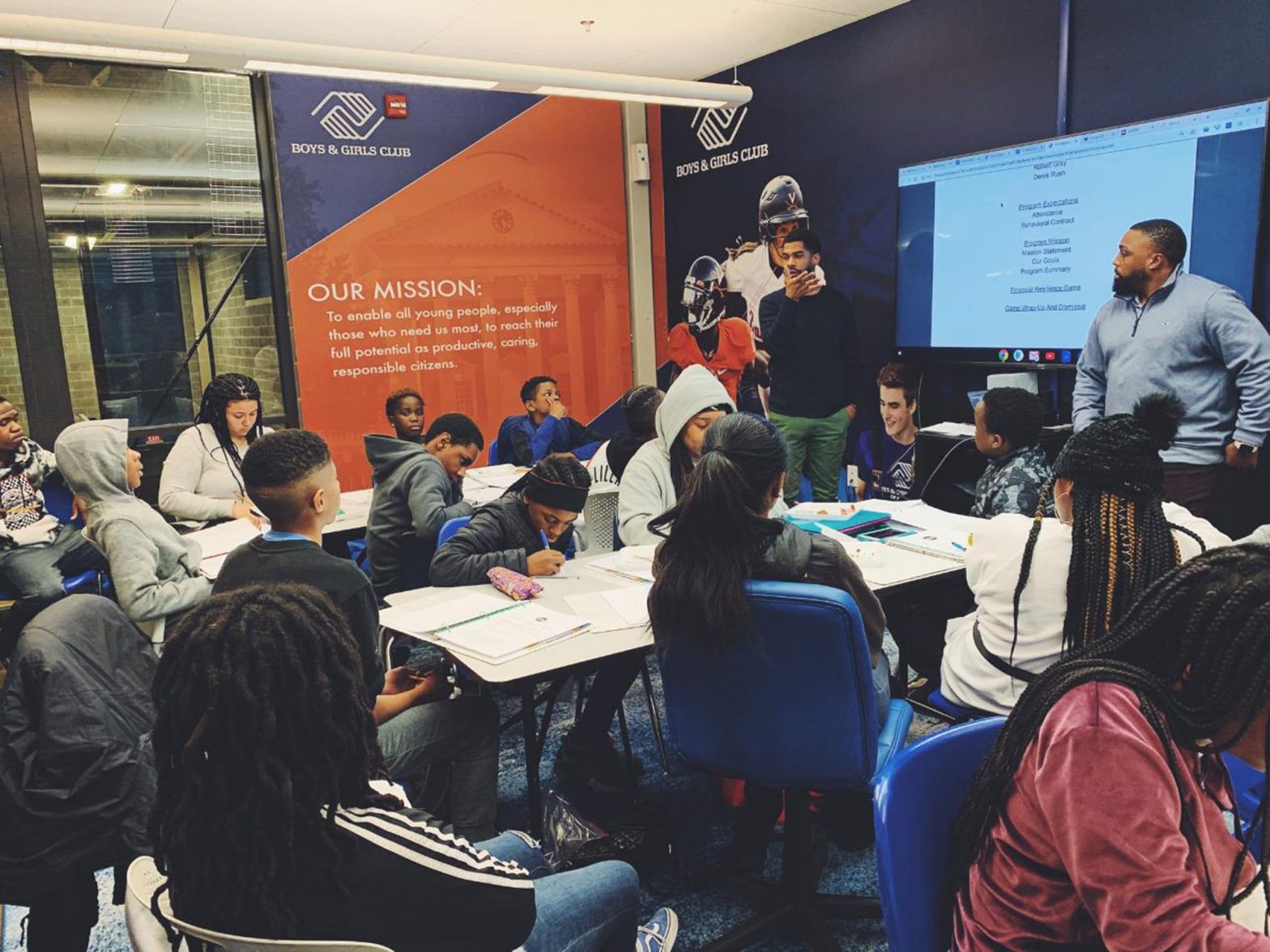Uhuru Foundation co- founder Derek Rush knows what it’s like to be behind bars. But he doesn’t let that part of his life define him, even in trying to make life better for young people in the same situation.
“Yes, I spent some time incarcerated,” Rush says. “But I don’t lean solely on that experience. It’s more about having fully shared experiences.”
Rush grew up in a rural neighborhood of southern Albemarle County alongside another kid named Robert Gray. The two boys knew each other but were never close. Trouble, on the other hand, was always nearby.
It would be many years—after college (Saint Augustine’s for Gray and Southern Virginia University for Rush) and several years in the workforce—before the boys would reunite as men. Having gone through many of the same tribulations, pulling themselves up by their rural, low-income bootstraps, Gray and Rush decided to work together in 2019 on a pilot program to help kids who’d been incarcerated or were at risk of being locked up.
After successful pilot programs at the Boys & Girls Club on Cherry Avenue and Blue Ridge Juvenile Detention, Gray and Rush expanded their programs and began work as the Conscious Capitalist Group Foundation. The goal was to focus on “opportunity youth,” individuals ages 16 to 24 who aren’t in school or working.
“We just wanted to work with kids that weren’t getting access to the services they needed,” Rush says.
Today, operating as the Uhuru Foundation, Gray and Rush provide kids and troubled adults life coaching, help with restitution, legal fees, and obtaining driver’s licenses, and assist on basic needs like food and housing.
“We’ve slowly but surely morphed into a mentoring program—individualized and group life coaching,” Gray says. The foundation offers site-based mentoring at schools, moderates high-risk youth programs at alternative schools and detention centers, and is adding reentry programs for the formerly incarcerated. Gray and Rush are also working with Habitat for Humanity of Greater Charlottesville to provide returning citizens supportive housing.
The pair are both alumni of the Community Investment Collaborative entrepreneurship workshop and members of the Charlottesville Regional Chamber of Commerce’s Leadership Charlottesville initiative. They both have backgrounds in youth mentoring, having coached kids’ sports and participated in other community organizations before starting their own.
Rush recently relocated to the Richmond area, and the Uhuru Foundation has expanded its reach, as well. The partners have launched programs with the Richmond and Henrico Public Health Foundation, Virginia Department of Juvenile Justice, Bon Air Juvenile Correctional Center, and Richmond Alternative School.
With a variety of nonprofits working with at-risk youth in Central Virginia, Gray and Rush say they’ve managed to find their niche by staying close to those they serve. Their “full spectrum” support system is about bringing innovative services to sometimes disillusioned young people.
“It’s just being real with them, letting them know we are here to build relationships,” Rush says. “These programs mess up when they have men trying to be friends with boys instead of trying to teach them to be men. We work with a lot of kids that come from single-parent households that don’t have a lot of positive male figures. We have our shortcomings as human beings, but we try to stay in tune with the kids.”
It’s a tough balance to strike, as any parent knows. But Gray says the Uhuru Foundation has worked to find the right staff and mentors for their young people. Just as they want to help at-risk youth stay out of trouble, they find staff members among individuals other organizations might overlook.
“We see value in individuals that come directly from the neighborhoods we are serving,” Gray says. “Other organizations might not be able to take on a risk like that.”
As the Uhuru Foundation grows into Richmond and elsewhere, Rush says it’s critical for the group to duplicate the processes that have been successful in Charlottesville. For example, the foundation is connecting with the Richmond Habitat for Humanity to continue expanding its reentry services.
Volunteers are also critical for growth, as Gray knows well. “The youth we work with can benefit from mentors of all types,” he says. “We are open to everyone, all different walks of life.”
